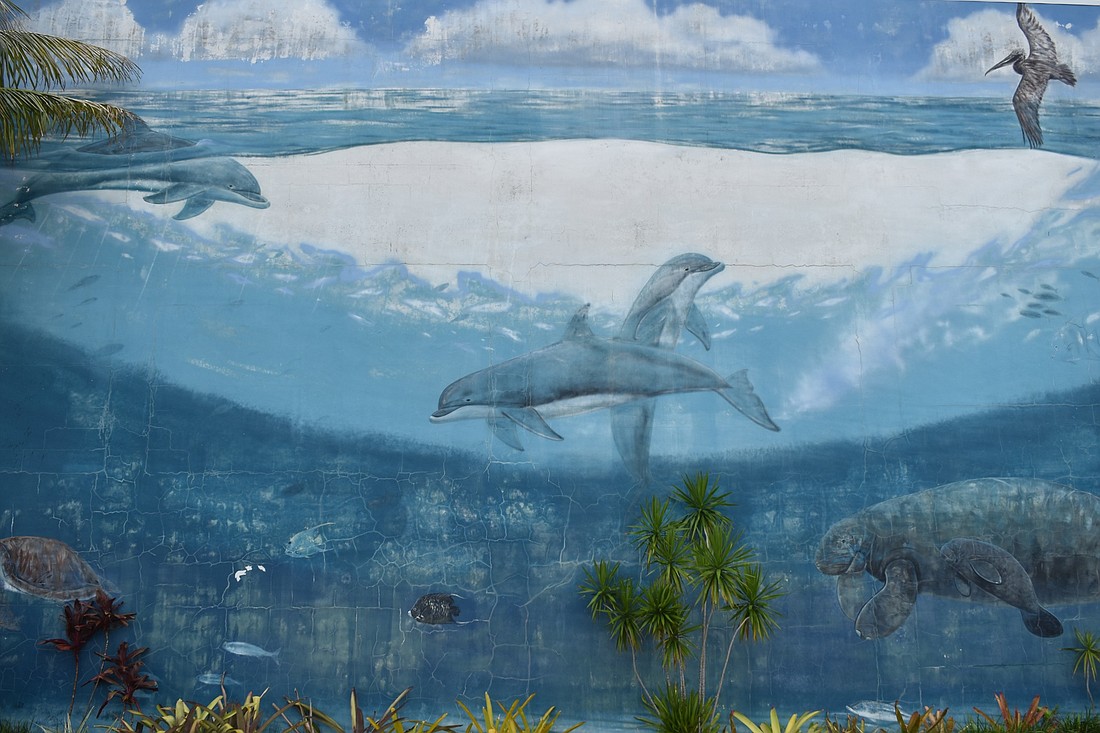- April 18, 2024
-
-
Loading

Loading

Almost a year after Gov. Rick Scott allocated $100,000 to Mote Marine Laboratory, aiding wildlife responders during a red tide bloom, the Stranding Investigations Program (SIP) continues its work quietly, without the specter of red tide, but with the persistent enemy of human influence.
While picking up a deceased manatee calf on June 30, Nicole Kieda, a Mote employee, said, “We’ve had a pretty busy summer so far. None of it can be attributed to red tide. It’s good, but it’s also unfortunate, because that means it’s a lot of human interaction stuff."
What is SIP?
SIP Manager Gretchen Lovewell is charged with leading rescue and recovery efforts for injured, dead or sick sea turtles and marine mammals as well as fundraising efforts. According to Mote's website, SIP began in 1985. Lovewell has been at Mote for 10 years. SIP's jurisdiction consists of "coastal Southwest Florida" per the website.
Lovewell described her program as a cross between rescue paramedics and crime-scene investigators.
“In the case of live animals, we want to get there and respond as quickly as possible and get those animals the help they need, whether that means getting them into rehab, or depending on how bad the case is, the best course of action is humane euthanasia,” she said.
For dead animals, which take up the majority of SIP’s time, the team tries to learn as much as possible from necropsies and research with the goal of strengthening conservation of species.
“We spend a lot of time going out and either recovering carcasses, assisting with rescues or verifying natural behaviors,” Lovewell said.
Manatees, dolphins, sea turtles and occasionally whales are the animals SIP works with most often. Manatees, though, are sent to St. Petersburg for the state Fish & Wildlife Conservation Commission to perform necropsies. SIP staff is comprised of three full-time staff members and one part-time employee who will cover for full-time staff when they're away. Once SIP rescues an animal, they go into the care of Mote’s hospital staff. SIP staff are involved with rehabilitation efforts, but not on a day-to-day basis, simply because they perform necropsies and don’t want to carry a disease over to a live animal.
24 hours a day, SIP is beholden to their hotline. Sometimes, instead of going to the beach at 3 a.m., staff will wait until first light to pick up a carcass. With a van, a boat and a truck, SIP is outfitted to manage a variety of animals whether dead or alive.
On days when staff aren’t in the field responding, they’re conducting research projects.
From 2013-2018, SIP received 591 calls from Longboat Key, resulting in the recovery of eight manatees, nine cetaceans (dolphins and whales) and 136 sea turtles. Lovewell noted that without red tide, the human threat grows stronger.
“In 2019, we've had a string of I think four out of six of the turtles we had recovered were struck. And bad, like, definitely causing death,” Lovewell said. “We didn't see as many last year. We also didn’t have people on the water last year because of the red tide. There are less boats so there’s less chance for issue.”
In 2018, from May-July on Longboat Key, SIP had 29 calls resulting in six stranded turtles recovered.
In 2019 during the same time period, SIP had 25 calls resulting in two stranded turtles and one stranded manatee recovered.
SIP deals chiefly with three animals in Longboat: bottlenose dolphins, loggerhead turtles and manatees. Volunteers have told SIP that there are problem spots with lighting on Longboat, ending in more disorientations and stranded hatchlings. Lovewell said SIP had a lot of animals on Longboat to take care of during red tide last summer, maybe more than surrounding areas. But Longboat is similar to the other barrier islands aside from small differences.
“There are a few areas in Longboat that I feel like manatees like to hang out and congregate,” Lovewell said. “Emerald Harbor is a big place that we get a lot of calls from.”
Lovewell said about 45 percent of the turtles SIP picks up show signs of human interaction, and of that 45 percent, about 85 percent of that are boat strikes. Out of all animals SIP handles, “it’s only about one in four that we see alive,” Lovewell said. “I mean, our manatees we tell apart by the scars they acquire from boats, because it leaves distinguishing marks.”
The personality of SIP
Lovewell’s position is embodied by conflict. She loves animals, but she mostly works with dead ones. She feels the emotions precipitated by her job, but compartmentalizes them so she can do it well.
On that June 30 day as Lovewell and Kieda pulled the dead manatee calf up on the beach, a woman nearby asked what happened. She then cried.
“I think we always get affected by it,” Lovewell said. “But we also try to learn from it. So while it's a sad, unfortunate situation, and we want to learn as much as we can, and really a lot of, especially for our dolphins and whales, a lot of what we know about the more unique species are just from strandings.”
Lovewell said the pain of a beloved ecosystem in danger is necessary to the job.
“It still affects us, and I think that if it doesn’t, we need to quit,” Lovewell said.
Aside from making sure people know dolphins are not like Flipper and that they more closely resemble The Joker – “Anything that smiles all the time, you just shouldn’t trust,” Lovewell said – she said to never be embarrassed about calling Mote’s hotline (941-988-0212), even if you’re wrong and the animal is fine.